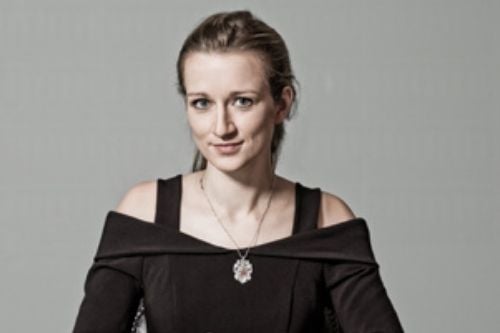

Insurers, like other businesses, need law firms they can trust as they face legal action from unsatisfied clients. Sophie Curlett, a barrister and solicitor at Robertsons Barristers and Solicitors (Robertsons), shared with Insurance Business how she entered insurance law, what it’s like to work in the area, and how the COVID-19 pandemic impacted her career.
Curlett (pictured) started her legal career with a barrister who had a varied civil and criminal practice but specialised in the defence of regulatory prosecutions, particularly WorkSafe prosecutions.
“I initially worked as a part-time law clerk while I finished university and my professionals and then later as a ‘junior’ employed barrister once I had my practicing certificate,” Curlett said.
She admitted that she was hesitant about pursuing a law career when she started her role, considering her lack of knowledge about health and safety.
“However, I enjoyed the problem-solving aspects of litigation and the intellectual challenge and developed huge respect for the operators of many of the small businesses for whom we acted,” she continued.
She eventually fell head over heels with law and found her experience as a barrister a superb introduction to litigation.
“The work was varied and challenging, and I feel that I learned a lot more by having direct instructions and guidance from a senior practitioner than I might have learned in a more corporate (and hierarchical) environment,” Curlett said.
Curlett eventually felt that she was ready for the next step in improving her law career. At that time, the Health and Safety at Work Act 2015 had come into force, with a five-fold increase in the quantum of the fines which could be ordered against dutyholders, so statutory liability was a hot topic for company directors, insurers, and brokers.
“Most SMEs with any exposure to the risk of prosecution by regulators will hold statutory liability insurance, which provides defence costs cover in the event that the SME is prosecuted. Many New Zealand insurers will instruct lawyers to act on both the defence and the indemnity aspects of a claim under the statutory liability policy. Consequently, many regulatory defence lawyers will also have an insurance law background,” Curlett explained.
“When it came time for me to move to a bigger firm, it was natural for me to foreground my existing experience and look to firms that had an insurance speciality.”
Curlett, who didn’t consider herself a “big firm” person, joined Robertsons as a junior solicitor and continued to act on instructions from insurers in the defence of WorkSafe and other regulatory prosecutions.
Now, as a barrister and solicitor, Curlett acts on instructions from insurers relating to a wide variety of claims against professionals and businesses. She also has a growing cyber liability practice amid the COVID-19 pandemic, advising companies on their cyber risks and incident response following malware and data breach incidents.
“In the last 12 months, I have given advice on ransomware and attacks, acted as breach counsel on data breaches, acted on the defence of copyright and defamation claims, appeared in the High Court in the defence of claims against professionals and the District Court in the defence of regulatory prosecutions, and drafted policy wordings relating to climate risks,” Curlett said.
Curlett said insurance law has a bad reputation for being boring outside the industry. However, she still finds insurance law interesting as she faces some of the most unusual and challenging claims, especially during the pandemic.
“The variety and scope of insurance law are very rewarding,” Curlett said. “As a boutique firm and insurance litigation specialist, Robertsons is regularly engaged in handling some of the more unusual and challenging claims which come across the desks of insurers’ claims teams. This frequently means very interesting and diverse work.”
